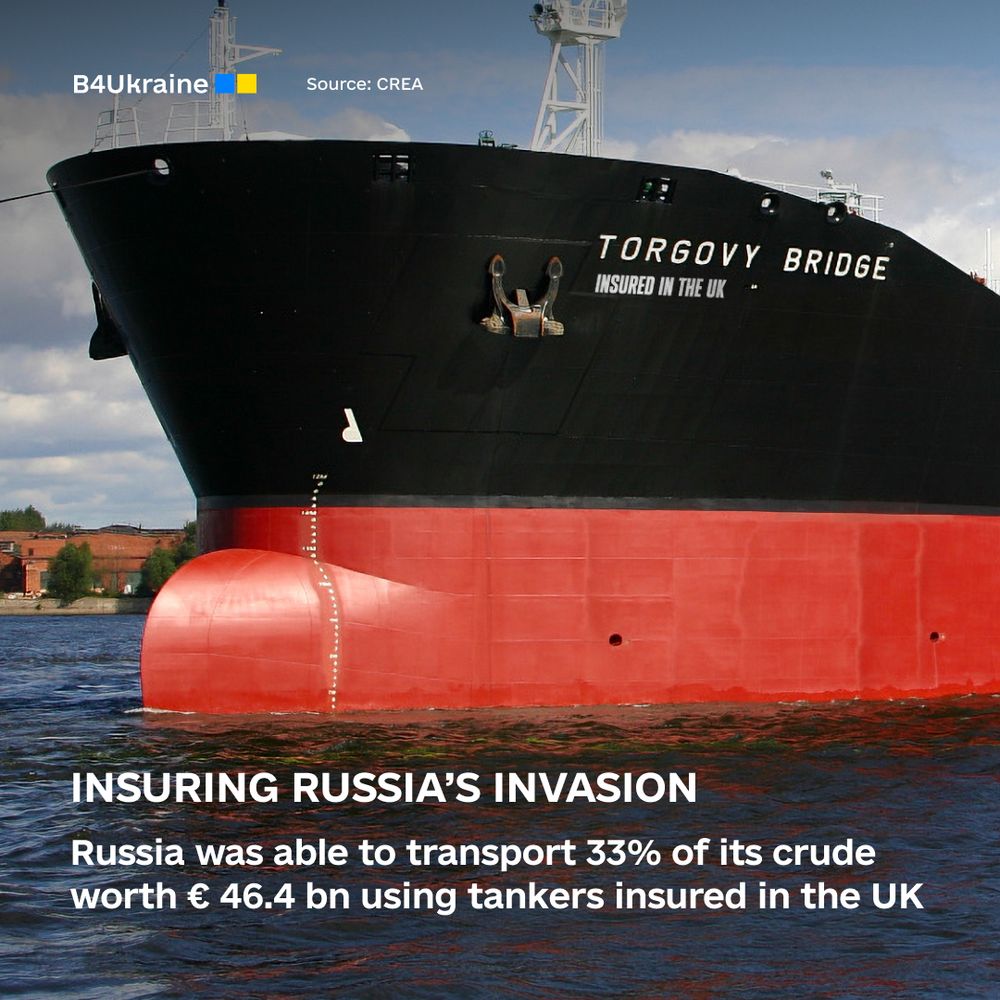
It is no secret that Russia’s ability to sustain its invasion against Ukraine mainly depends on its ability to sell large quantities of fossil fuels, including its crude oil, to the rest of the world. Less known is Russia’s reliance on Western-owned and insured tankers to transport its crude globally. Despite the established price cap by the EU/G7 countries, Russia continues to successfully replenish its military budget with fossil fuel revenues by relying on Western-owned and insured oil tankers.
Between March 2022 and November 2023, the United Kingdom provided insurance to ships transporting Russian crude worth EUR 120.6 bn. In the first 12 months since the adoption of the oil price cap (5 December 2022), EUR 46.4 bn of Russian oil has been transported on tankers using UK protection and indemnity (P&I) insurance. In short, 33% of all Russian oil (by volume) was transported on tankers insured in the UK since the sanctions were implemented until early November 2023, according to a new study by the Center for Research on Energy and Clean Air.
A single UK insurer, West of England P&I Club, has insured more than €20 bn in Russian oil since the Russia-Ukraine war began. In November alone ships insured by another UK P&I club, NorthStandard, transported €1.2 bn in Russian crude and oil products.
In December 2023, 62% of Russian oil products, chemicals, and liquefied petroleum gas (LPG) were carried on tankers owned or insured in countries implementing the price cap policy.
Russia’s reliance on tanker insurance provided by the UK and other G7 countries to transport its oil leaves these countries with significant leverage that could be used to lower the price cap and implement better monitoring and enforcement. CREA estimates that a price cap of USD 30 per barrel would have slashed Russia’s revenues by EUR 4.9 bn or 41% in November 2023 alone. For a full set of policy recommendations, see CREA’s report.
As a key ally and a bilateral donor to Ukraine, the United Kingdom is uniquely positioned to address this sanctions loophole, which would play a critical role in undermining Russia’s ability to carry on its unprovoked war against a peaceful neighbor.